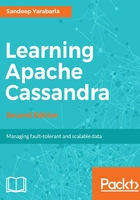
Immediate consistency
When we write a piece of data to a database, it is our hope that that data is immediately available to any other process that may wish to read it. From another point of view, when we read some data from a database, we would like to be guaranteed that the data we retrieve is the most recently updated version. This guarantee is called immediate consistency, and it's a property of most common single-master databases such as MySQL and PostgreSQL.
Distributed systems such as Cassandra typically do not provide an immediate consistency guarantee. Instead, developers must be willing to accept eventual consistency, which means when data is updated, the system will reflect that update at some point in the future. Developers are willing to give up immediate consistency precisely because it is a direct trade-off with high availability.
In the case of Cassandra, that trade-off is made explicit through tunable consistency. Each time you design a write or read path for data, you have the option of immediate consistency with less resilient availability, or eventual consistency with extremely resilient availability. We'll cover consistency tuning in great detail in Chapter 10, How Cassandra Distributes Data.